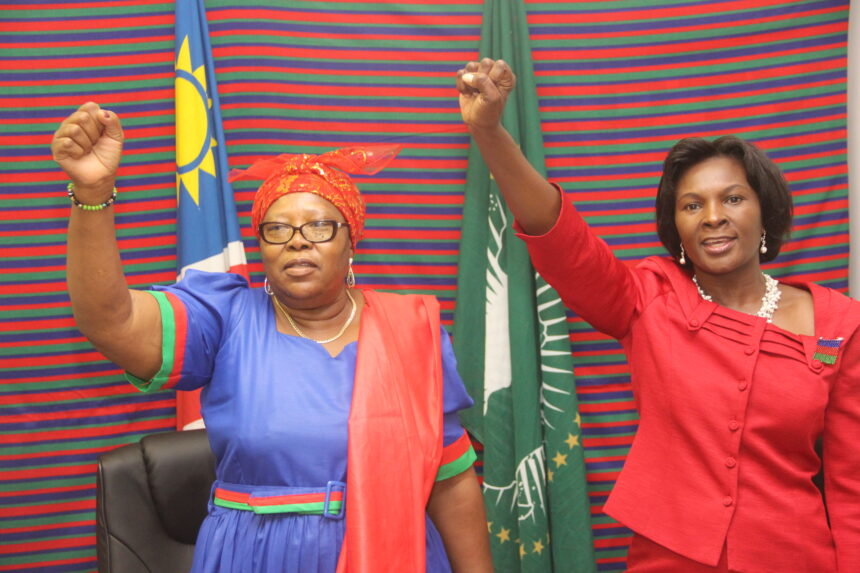Lahja Nashuuta
Stories of women, both the famous and the little-known, who made outstanding contributions pre- and post-independence, will soon be told and celebrated.
This is because the Swapo Party Women’s Council (SPWC) is documenting biographies, autobiographies, and stories of women who made outstanding contributions pre- and post-independence, but whose stories remain untold.
SPWC is writing a book to capture all unique narratives of the extraordinary women who not only played a role in the liberation struggle, but also in other spheres of life. The project spearheaded by SPCW secretary Fransina Kahungu is reportedly at an advanced stage and is envisioned to be published between January and March 2025.
“Presently, every veteran has a unique story and memories. Many veterans of the liberation struggle have passed on with untold history. The simple act of asking to hear a veteran’s story can make it possible to carry their stories on to future generations,” Kahungu said. “We want to explore the many challenges these women faced along the way, how they responded to [the challenges], as well as dwell on lessons learnt from the history of the SPWC that can inform current and future strategies for women’s empowerment and political participation,” Kahungu said.
The book will be titled ‘The Toil of Women Comforts the Nation’.
It chronicles key events, milestones, and initiatives undertaken by female liberation struggle stalwarts and others who contributed to the socio-economic development of an independent Namibia in their unique ways.
Liberation struggle
Chronicling the women’s journey in the liberation struggle, Kahungu mentioned women such as Vice President Netumbo Nandi-Nandi Ndaitwah, the late Rosalia Nghidinwa, and former secretary general and minister of justice Pendukeni Iivula-Ithana as some of the heroines of the liberation struggle. “Those women used to provide food, nurse Plan soldiers, mobilise, raise funds, lobby for support, and be soldiers. They did, however, not participate in Plan guerilla units to the same extent as men. Whether their roles were given the same value as those men performed during the war remains open for interrogation,” she said.
According to Kahungu, the first women’s wing of Swapo was formed in Tsumeb in 1962 to mobilise all the women in Namibia to rally behind the liberation movement.
The first chairperson of the Swapo Women’s Association was the late Maria Ambwiyu, and her deputy was Maria Nehoya. “Nehoya (95) is still alive and resides in Tsumeb. When I visited her this year, she told me it is good for people to know that she was one of the first women who took part in the structuring of Swapo party inside Namibia,” Kahungu said.
“As we commemorate this year’s Heroes’ Day, it is necessary to appreciate those Namibian women who participated in resistance activities against the German conquest an
d all other colonial rule,” she said.
Echoing the sentiment was Eunice Ipinge, who is a member of the SPCW central committee and president of Pan Africa Women’s Organisation.
While acknowledging the role played by heroes and heroines of the liberation struggle, such as Getruth Kandanga, Ipinge maintained that women were part and parcel of the liberation struggle since genesis.
Kandanga, according to Ipinge, used to exchange information, sell party membership cards, announce rallies, and organise marches on behalf of Swapo.
“It was through the Swapo Women’s Council that women were mobilised to partake in the liberation struggle at all levels and to link up with other women from different countries and organisations who had experience and knowledge on fast-forwarding women’s issues.
“Our motto was that we needed to liberate our country first for us to liberate ourselves. It is because of pressure from the Swapo Women Council that today the party has a Constitution that speaks of gender equality and women’s rights,” Ipinge maintained.



